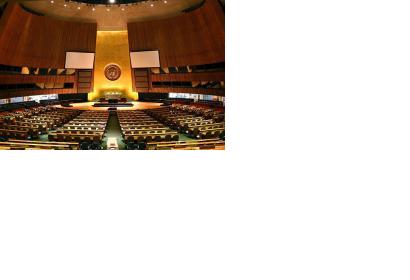Delegates in the General Assembly of the United Nations adopted a consensus resolution last week, by which they addressed global geospatial information management. The document entitled “A global geodetic reference frame for sustainable development” (A/RES/69/266) urges States to voluntarily implement open sharing of geodetic data, standards and conventions, inviting them to improve national geodetic infrastructure and engage in multilateral cooperation that addressed infrastructure gaps and duplications, towards the development of a more sustainable geodetic reference frame.
The resolution specifically recognizes the "economic and scientific importance of and the growing demand for an accurate and stable global geodetic reference frame for the Earth that allows the interrelationship of measurements taken anywhere on the Earth and in space, combining geometric positioning and gravity field-related observations, as the basis and reference in location and height for geospatial information, which is used in many Earth science and societal applications, including sea-level and climate change monitoring, natural hazard and disaster management."

